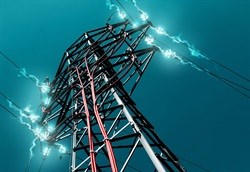PRETORIA: Non-essential assets which are to be sold off in order to raise money for funding for Eskom have been identified, Public Enterprises Minister Lynne Brown said on Thursday, 20 November.
"Some of the assets have been identified but it of course rests with [National] Treasury. So Treasury should give you the outline of all the non-core assets we are talking about, but they have been identified," said Minister Brown.
She said at this stage the information was commercially sensitive.
In his maiden Medium Term Budget Policy Statement (MTBPS) in October, Finance Minister Nhlanhla Nene said that steps to safeguard power parastatal Eskom have been taken to secure its financial stability. Eskom will borrow R250 billion over the next five years supported by existing guarantees from government. Government will provide at least R20 billion in funding raised through the sale of non-strategic assets.
Minister Brown was responding to a question at a briefing by the Economic Sectors, Employment and Infrastructure Development Cluster (ESEID) which was chaired by Rural Development and Land Reform Minister Gugile Nkwinti.
The briefing spoke to the achieves of ESEID's programme of action quarter achievements.
Minister Nkwinti highlighted that addressing the country's current electricity constraints remains a priority in line with President Jacob Zuma's State of the Nation Address.
"Interventions that have been introduced include improving the financial sustainability of Eskom, the roll-out of the Renewable Energy Independent Power Producers (IPPs) to augment state investments in generation capacity and the creation of a regulatory environment that will encourage investments," he said.
Additionally, the process to amend the National Energy Regulator Act, 2004, and the Electricity Regulation Act, 2006, to ensure a more efficient and predictable regulatory environment, has commenced.
Through the Integrated Electrification Programme, government has achieved 5 667 non-grid connections and 93 462 grid connections for the period April to September 2014.
"As part of the package to support Eskom towards sustainability, approval was granted to allow migration towards cost-effective tariffs to ensure a sustainable electricity industry, while ensuring affordability on the part of poor households.
Renewable energy
On renewable energy such as solar and wind, the Department of Energy has procured over 3,900MW of renewable energy with about 1,000MW already in operation and 1,400MW planned to come online during 2016.
Work is underway to procure the remaining megawatts in line with the Integrated Resource Plan (IRP) 2010. About 2,500MW has been allocated for coal programme procurement from IPPs.
Work on the Grand Inga Project to secure 2,500MW is continuing, while an energy agreement between South Africa and the Democratic Republic of Congo has been signed.
The agreement which was signed on 9 September provides a legal framework for cooperation between the two countries.
The Medupi Power Station Unit 6 synchronization is on track for the end of December 2014, with grid connection and full operation only possible around June 2015, said the Cluster.
Shale gas
The cluster also spoke on issues around shale gas.
"Since the publication of draft regulations on shale gas development, substantive inputs have been received from interested and affected stakeholders. The regulations to guide shale gas exploration are at a consultation stage," explained Minister Nkwinti.
In August, government said it is ready to regulate and monitor companies that have expressed an interest in exploring shale gas in the country.
The Department of Mineral Resources first halted new applications for exploration rights in 2011 to investigate the impact that process would have on the environment, and an interdepartmental task team was set up to head this process.
"Government is clear that shale gas will form a part of our energy mix going forward," said Minister Nkwinti.
















































